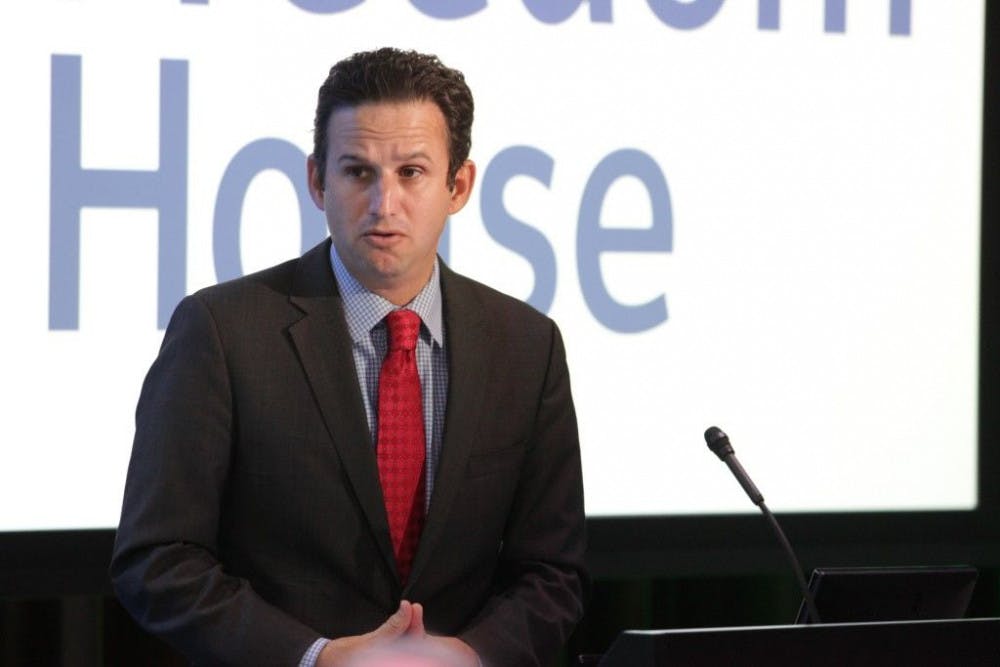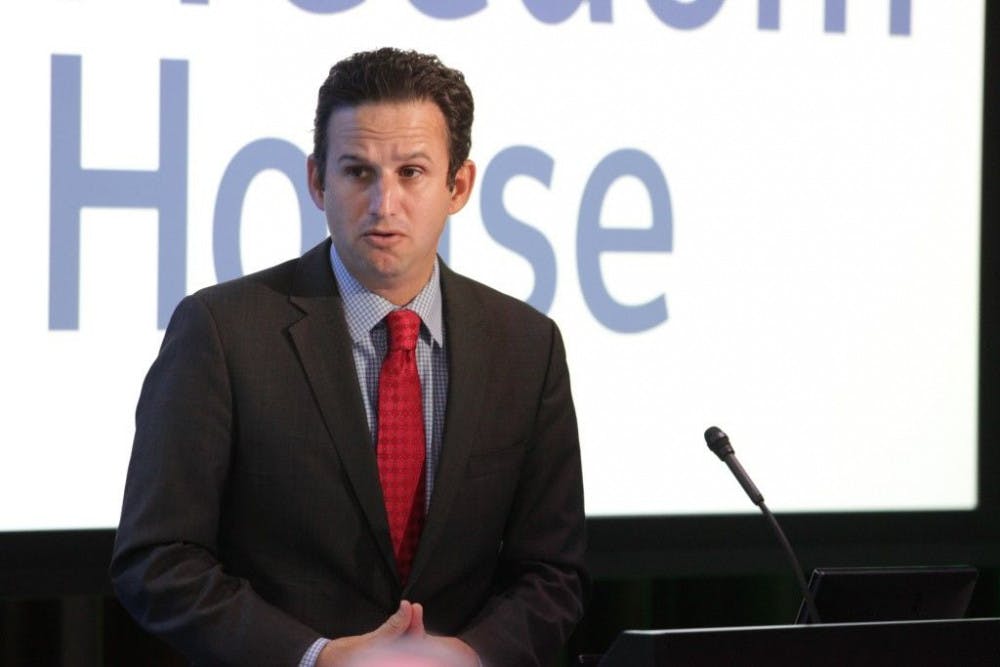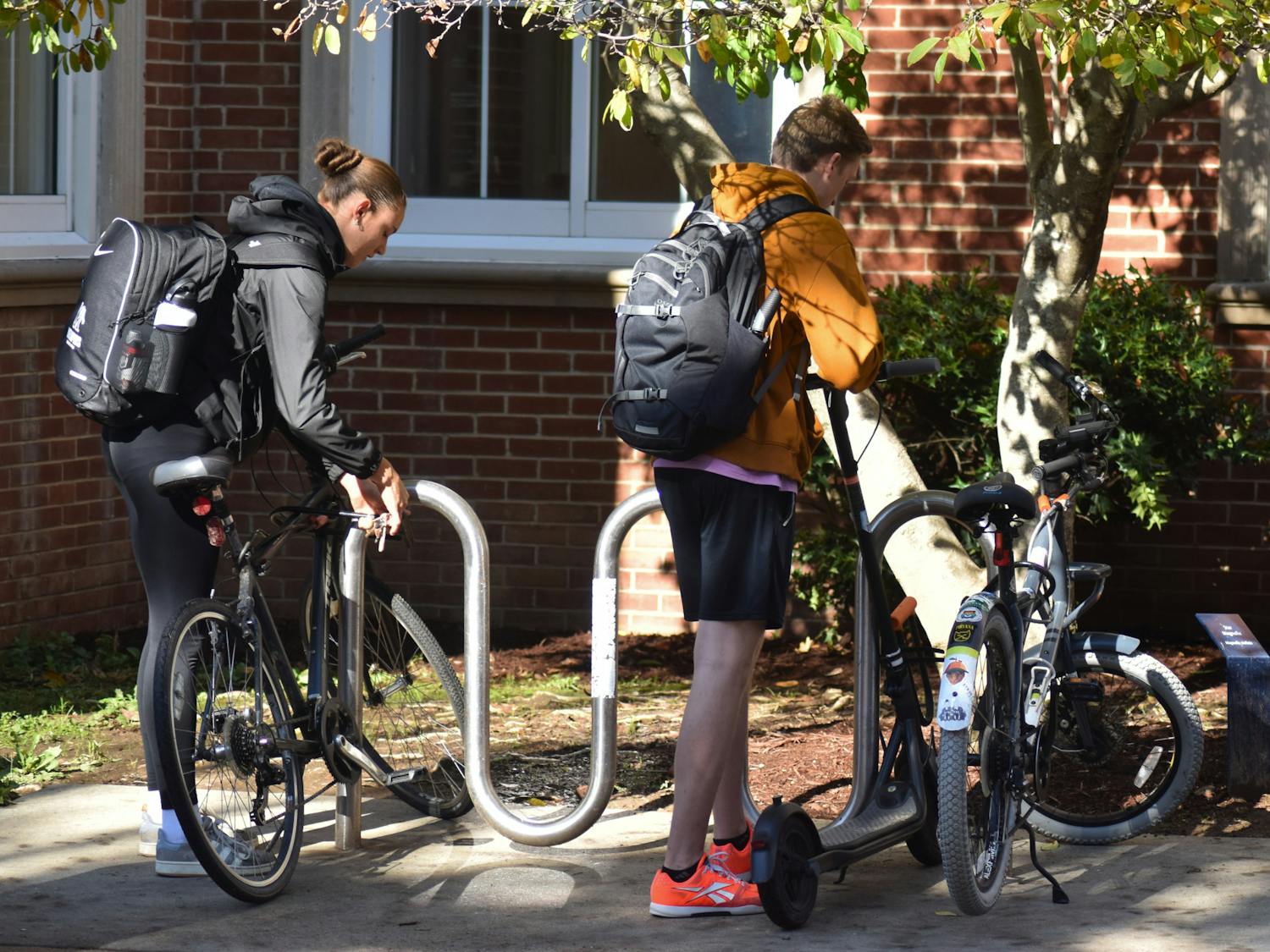
At the launch of Freedom on the Net 2015 report on Wednesday, Sen. Brian Schatz, D-Hawaii, says that a distinction should be made between government sanctioned surveillance programs for national security purposes and monitoring solely for the purpose of political intimidation and repression. SHFWire photo by Kelvin Suddason
WASHINGTON – This year’s Freedom on the Net report is out and carries a bleak conclusion: Online freedom has declined for the fifth consecutive year.
“Out of 65 countries that we assessed in the past 12 months, 32 have experience overall declines since June 2014,â€Â Sanja Kelly, project director at Freedom House, said at the Google offices for the report release Wednesday.
“While Internet use is on the rise, so too is the censorship and political surveillance,†Sen. Brian Schatz, D-Hawaii, said.
WASHINGTON – This year’s Freedom on the Net report is out and carries a bleak conclusion: Online freedom has declined for the fifth consecutive year.
“Out of 65 countries that we assessed in the past 12 months, 32 have experience overall declines since June 2014,â€Â Sanja Kelly, project director at Freedom House, said at the Google offices for the report release Wednesday.
“While Internet use is on the rise, so too is the censorship and political surveillance,†Sen. Brian Schatz, D-Hawaii, said.
Governments are making it harder for users to disguise their personal data, such as location, thus undermining user anonymity. Governments can then monitor online activity of opposition activists and sanction then.
For example, Syrian blogger, journalist and human rights activist Assad Hanna was stabbed in his Istanbul apartment for his criticism of Syria’s ruling regime. He said that the attack could not have been a coincident, especially after receiving multiple threats from political groups.
Kelly also brought up the right to be forgotten as one of the emerging areas in the field of online freedom. The Court of Justice of the European Union, ruling in May 2014, gave individuals the right to request that information that is irrelevant or no longer accurate about them be hidden by search engines.
While this ruling applies to people living in the EU, its application in other countries with notably less transparent and accountable system could cause prejudice to millions. For instance, Russia allows public officials to exercise this right. For Kelly, this means that corrupt officials could wipe out past criminal charges from online searches.Â
There are now more people living in countries classified as “Not Free†than there are in “Free†countries, Kelly said.
Out of the 3 billion people that are connected to the Internet, 61 percent live in countries where criticism of the government, military or ruling family has been subject to censorship. Nearly half of them live in countries where individuals have been attacked or killed for online activities since June 2014. Nearly a third of these 3 billion people live under governments that sometimes disconnected Internet or mobile phone access in the past year.
Despite the bleak figures, the report noted that digital activism has been and remains a vital driver of change around the world, particularly in societies that lack political rights and press freedom.
“People everywhere ought to enjoy freedoms expression, assembly and association, online and offline,†Schatz said.






